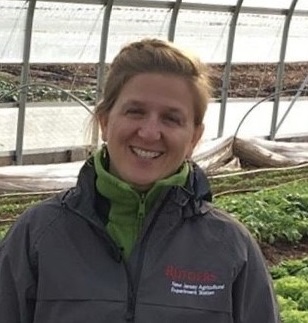Jul 13, 2021USDA-NIFA funding used to promote vaccine education by Rutgers Extension
There is significant concern among farmworkers and farmers about on-farm transfer of the COVID-19 virus. The ability to connect with vaccine providers has proven difficult for those language and technology/internet barriers, and those without established relationships with health care providers.
In addition, undocumented farmworkers are less likely to have a health care connection and are particularly vulnerable as these workers have concerns about making themselves visible to the government through the vaccination process. Because these communities tend to be harder to locate, and more difficult with which to communicate and establish trust, Rutgers Cooperative Extension (RCE) is using its farmer relationships and communication networks to reach them.
RCE has been awarded a portion of the Centers for Disease Control and Prevention (CDC) $9.95 million in funding to the U.S. Department of Agriculture’s National Institute of Food and Agriculture (NIFA) to support an innovative approach to community education and partnerships to advance adult immunization. This is the two agencies’ first concentrated vaccine education effort in rural America.


Cara Cuite
The RCE project, “NJ Rutgers Cooperative Extension Farmworker Immunization Education and Outreach,” is led by Cara Cuite, assistant extension specialist in the Department of Human Ecology; Meredith Melendez, county agent, RCE of Mercer County; Brian Schilling, director, RCE, and Rick Vanvranken, department head, RCE of Atlantic County; and a larger team of agents.
“We have been helping create connections between farmers and migrant seasonal farmworkers to the NJ healthcare system. The hope is that these new relationships will last well beyond COVID, and that this project will continue to have positive effects on farmworker health well into the future,” said Cuite.
The Director of the Office of Primary Care and Rural Health at New Jersey Department of Health (NJDOH) has been coordinating with federally qualified health centers (FQHCs) and other providers to vaccinate migrant farmworkers.


Meredith Melendez
“Agricultural agents have capitalized on the existing relationships that they’ve built within the agricultural community to inform the farming community about vaccines and connect them with their local FQHCs. Agricultural agents have shared information directly with farmers, with state and county agricultural agencies, and agricultural non-profits to reach as many members of the farming community as possible. This has served as a reminder of the importance of our historical collaborative efforts in the state, as these relationships are critical to keeping our farming community healthy and in business,” added Melendez.
Cuite and Melendez emphasized that RCE’s status as a trusted partner within the farming community has enabled the collaboration with the NJDOH to extend outreach in the following ways:
- using existing listservs and social media accounts to push out information about vaccines to farmers, some of it tailored to the migrant farmworker population. Also, sharing Vaccinate with Confidence materials as well as materials developed by the NJDOH, whenever possible in the five languages most frequently spoken by NJ farmworkers. These resources are available publicly on a newly developed Vaccine Information for Farmers page on the Rutgers On-Farm Food Safety program website. A new email, [email protected], has been created for questions from farmers.
- regularly meeting with NJDOH and healthcare providers, and the Extension Agents in their catchment areas, to work collaboratively on communicating with farmers and scheduling vaccination clinics. This has worked slightly differently in each county. We have currently met with four healthcare providers and continue to work with others as NJDOH identifies the opportunity for us to contribute.
- conducting direct outreach by phone, text and email to specific farmers identified by healthcare partners.
- discussing the issues and availability of vaccines at select County Board of Agriculture meetings and using these meetings to coordinate vaccination clinics for multiple nearby farms.















